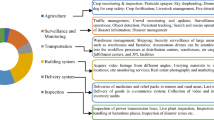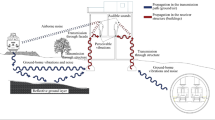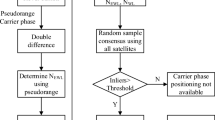Abstract
Integration of an inertial navigation system (INS) and global positioning system (GPS) assures the reliability and accuracy of navigation solutions compared with standalone GPS or INS. In the present study, a low-cost micro-electro-mechanical system (MEMS)-grade INS/GPS navigation system is improved for predicting the INS sensor errors at GPS interruptions. Because of some conditions, including high stochastic noise of low-cost MEMS-grade inertial sensor, highly complex model of real noisy data, the non-linear dynamic environment, the high-speed vehicle, and the long-term absence of GPS navigation system during our experiments, a modified neuro-fuzzy system is proposed to handle the prediction of the INS positioning error during the long-term GPS interruptions. The proposed method using an iterative rule-based optimization technique provides both accuracy maximization and complexity minimization, with fewer rules than the adaptive neuro-fuzzy inference system (ANFIS). This method aims to enhance the calculation efficiency and improve the speed and accuracy of estimation in real-time applications. The effectiveness of the proposed integrated solution is assessed through real field test data in a flight scenario using a high-speed vehicle. The achieved results are also compared against ANFIS, wavelet neural network (WNN), extreme learning machine (ELM), and the extended Kalman filter (EKF) methods. Herein, the achieved results show considerable accuracy improvement in positioning compared to ANFIS, ELM, and the EKF for low-cost MEMS-grade INS sensors in the long-term GPS interruptions by approximately 41% and 79%, respectively.














Similar content being viewed by others
Data Availability
Our data have been gathered with a flight test aircraft flying along the trajectory in a pilot and hospitality training center named Meraj Aviation Academy.
Code Availability
We have coded our proposed algorithm in C in a Matlab environment.
References
Godha, S. (2006). Performance evaluation of low-cost MEMS-based IMU integrated with GPS for land vehicle navigation application. In: Ph.D. Dissertation, Department of Geomatics Engineering, Alberta: University of Calgary
Gupta, K., Jindal, P., & Snehi, V. (2013). Implementation Kalman filter in GPS navigation. International Journal of Innovative Technology and Exploring Engineering, 2(4), 2278–3075.
Zhong, M., Guo, J., & Cao, Q. (2015). On designing PMI Kalman filter for INS/GPS integrated systems with unknown sensor errors. IEEE Transaction on Sensors, 15(1), 535–544.
Aggarwal, P., Noureldin, A., & El-sheimy, N. (2010). MEMS-based integrated navigation GNSS technology and application series. Artech House London.
Lio, Y., Fan, X., Lv, C., Wu, J., Li, L., & Ding, D. (2018). An innovative information fusion method with adaptive Kalman filter for integrated INS/GPS navigation of autonomous vehicles. Journal of Mechanical System and Signal Processing, 100(10), 605–616.
Hieu, L. N., & Nguyen, V. H. (2012). Loosely coupled GPS/INS integration with Kalman filtering for land vehicle application. In IEEE Conference on Control, Automation and Information Sciences, (pp. 90–95)
Sun, B., Zhang, Z., Qiao, D., Mu, X., & Hu, M. (2022). An improved innovation adaptive Kalman filter for integrated INS/GPS navigation. Sustainability, 14(18), 11230.
Zhang, Y., & Wang, L. (2019). A hybrid intelligent algorithm DGP-MLP for GNSS/INS integration during GNSS outages. Journal of Navigation, 72(2), 375–388.
Yao, Y., Xu, X., Zhu, C., & Chan, C. Y. (2017). A hybrid fusion algorithm for GPS/INS integration during GPS outages. Journal of Measurement, 103, 42–51.
Chen, H., Du, X., Wu, X., & Li, H. (2022). On SINS/GPS integrated navigation filtering method aided by radial basis function neural network (pp. 2389–2402). In Advances in Guidance.
Ning, Y., Wang, J., Han, H., Tan, X., & Liu, T. (2018). An optimal radial basis function neural network enhanced adaptive robust Kalman filter for GNSS/INS integrated systems in complex urban areas. Journal of Sensors, 18(9), 3091.
Bai, Y. T., Shao, Z. Y., Wang, X. Y., Jin, X. B., & Zhang, B. H. (2022). Continuous positioning with recurrent auto-regressive neural network for unmanned surface vehicles in GPS outages. Neural Processing Letters, 54(2), 1413–1434.
Li, J., Song, N., Yang, G., Li, M., & Cai, Q. (2017). Improving positioning accuracy of vehicular navigation system during GPS outages utilizing ensemble learning algorithm. Journal of Information Fusion, 35, 1–10.
Abdolkarimi, E., Abaei, G., & Mosavi, M. (2018). A wavelet-extreme learning machine for low-cost INS/GPS navigation system in high-speed applications. Journal of GPS Solutions, 22(1), 15.
Xu, T. (2013). Seamless INS/GPS integration based on support vector machines. Applied Mechanics and Materials, 336, 277–280.
Wei, X., Li, J., Feng, K., Zhang, D., Li, P., Zhao, L., & Jiao, Y. (2021). A mixed optimization method based on adaptive Kalman filter and wavelet neural network for INS/GPS during GPS outages. IEEE Access, 9, 47875–47886.
Al-Hmouz, A., Shen, J., Al-Hmouz, R., & Yan, J. (2012). Modeling and simulation of an adaptive neuro-fuzzy inference system (ANFIS) for mobile learning. IEEE transactions on Learning Technologies, 5(3), 226–237.
Karaboga, D., & Kaya, E. (2019). Adaptive network based fuzzy inference system (ANFIS) training approaches: A comprehensive survey. Artificial Intelligence Review, 52(4), 2263–2293.
Jang, J. (1993). ANFIS: Adaptive-network-based fuzzy inference system. IEEE Transactions on Systems, Man, and Cybernetics, 23(3), 665–685.
Tawafan, A., Sulaiman, M., & Ibrahim, Z. (2012). Adaptive neural subtractive clustering fuzzy inference system for the detection of high impedance fault on distribution power system. International Journal of Artifical Inteligence, 1(2), 63–72.
Yang, L. H., Ye, F. F., Lin, J., Wang, Y. M., & Hu, H. (2021). An improved fuzzy rule-based system using evidential reasoning and subtractive clustering for environmental investment prediction. Fuzzy sets and Systems, 421, 44–61.
Jekeli, Ch. (2001). Inertial navigation systems with geodetic applications. Berlin: Walter de Gruiter.
Titterton, D., & Weston, J. (2004). Strapdown inertial navigation technology. Institution of Engineering Technology. https://doi.org/10.1049/PBRA017E
Hussain, K., Salleh, M., & Najib, M. (2015). Analysis of techniques for ANFIS rule-based minimization and accuracy maximization. ARPN Journal of Engineering and Applied Sciences, 10(20), 9739–9746.
Gorzalczany & Marian B. (2012). Computational intelligence systems and applications: Neuro-fuzzy and fuzzy neural synergisms. Physica 86
Vörsmann, P., Kaschwich, C., Krüger, T., Schnetter, P., & Wilkens, C. S. (2012). MEMS based integrated navigation systems for adaptive flight control of unmanned aircraft—State of the art and future developments. Journal of Gyroscopy and Navigation, 3(4), 235–244.
Shoorehdeli, M. A., Teshnehlab, M., Sedigh, A. K., & Khanesar, M. A. (2009). Identification using ANFIS with intelligent hybrid stable learning algorithm approaches and stability analysis of training methods. Applied Soft Computing, 9(2), 833–850.
Huang, G. B., Zhu, H., Ding, X., & Zhang, R. (2012). Extreme learning machine for regression and multiclass classification. IEEE Transactions on Systems, Man, and Cybernetics, Part B Cybernetics, 42(2), 513–529.
Funding
This research received no external funding.
Author information
Authors and Affiliations
Contributions
Conceptualization, ESA and MRM; Investigation, ESA; Methodology, ESA; Supervision, MRM; Validations, ESA; Original draft writing, ESA; Review and editing, MRM. All authors have read and agreed to the published version of the manuscript.
Corresponding author
Ethics declarations
Conflict of Interest
The authors declare no conflict of interest.
Additional information
Publisher's Note
Springer Nature remains neutral with regard to jurisdictional claims in published maps and institutional affiliations.
Rights and permissions
Springer Nature or its licensor (e.g. a society or other partner) holds exclusive rights to this article under a publishing agreement with the author(s) or other rightsholder(s); author self-archiving of the accepted manuscript version of this article is solely governed by the terms of such publishing agreement and applicable law.
About this article
Cite this article
Abdolkarimi, E.S., Mosavi, M. A Modified Neuro-Fuzzy System for Accuracy Improvement of Low-Cost MEMS-Based INS/GPS Navigation System. Wireless Pers Commun 129, 1369–1392 (2023). https://doi.org/10.1007/s11277-023-10194-w
Accepted:
Published:
Issue Date:
DOI: https://doi.org/10.1007/s11277-023-10194-w






